What’s It All About?
What is Freemasonry
Freemasonry is essentially a system of self-development. It is a fraternal society that was created over 300 years ago as a voluntary organisation whose theme is taken from the medieval stonemasons who built Britain’s ancient cathedrals in the 13th and 14th centuries. Essentially the masonic experience of lodge night is divided into two; part performing art and part gentleman’s dining club.
The first part of the evening is a ceremony in which most of the members participate, and to which we invite masonic guests from other lodges. This is a dramatic representation where members are invited to reflect on the role they play in society.
The second part is the refectory or Festive Board, which is a formal dinner with speeches. Generally speaking Freemasonry means different things to different people. However, what it does offer is a fantastic opportunity to participate in a sustained form of self-development, meet a great number of like-minded individuals, and to make a contribution to charity.
What Do Freemasons Do?
A typical Freemason will be a member of a Masonic Lodge which will meet once a month between April and December. As with any Society there are Officers of the Lodge, the most important being the Master of the Lodge. Members work their way up to being Master, and for many this is one of the highlights of their Masonic career. Other Officers include a Treasurer and Secretary.
At a meeting all the normal things you would associate with a society meeting (minutes, motions, news etc.) will take place, but what distinguished Freemasonry is the fact that a number of different ceremonies take place at the meeting in which the candidates and many members of the Lodge can take part. The objective of these ceremonies is to instruct the candidates, in somewhat dramatic form, in the history and underlying principles of freemasonry. They parallel a Member’s entry into this life, his interactions and relationships with others and the understanding of himself.
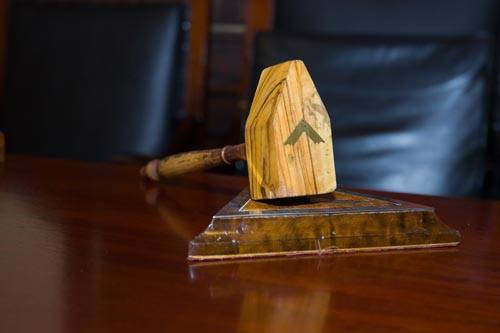
The various officers of the Lodge take part led by the Master and often other members contribute. The ceremonies illustrate how a Freemason should interact with other Freemasons and with non-masons as well. The parts are usually learned by heart and are often expressed in very descriptive language (often the English of two hundred years ago).
There are some minor variations in the ceremonies in different lodges and across constitutions, but they basically take a similar form across the world. Because of this, a Member can visit a Lodge in any country in the world and understand what is going on even if he does not understand the language of that country. These ceremonies bind Freemasons together and they give the Members the experience of acting in them in the Lodge.
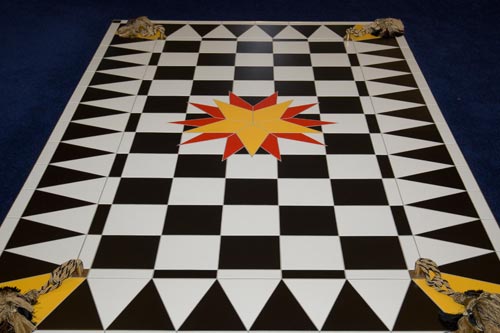
Once the ceremony is over members then retire to dine in refectory in what is often called a “Festive Board” where the Members enjoy each other’s company over dinner. Meetings in our Lodge start at 6:30pm, the Members move into dinner at about 8:00pm and the meeting is usually over by 10 – 10.30pm.
Visiting other Lodges is one of the joys of Freemasonry. Most members will know members of other Lodges and there is frequent visiting between Lodges (both local and national and sometimes international). One interesting aspect of visiting is seeing how members in other Lodges carry out the ceremonies as ceremonies between the constitutions can be quite different in detail (though broadly the same in intent).
An important aspect of Freemasonry is charitable work. In days gone by the main effort was in supporting Masonic Charities but today all forms of Charity are supported. Freemasons tend not to broadcast their charitable work but many local and national charities are supported and assistance is also provided for International disasters.
Our values are based on integrity, kindness, honesty and fairness.
Freemasonry offers the opportunity of meeting a wide variety of people from the local community in a very sociable environment.
- It consists of men brought together for the sake of mutual intellectual, social and moral improvement. We do this through participation in dramatic ceremonial plays.
- It recognises no distinction of religion and emphasises the duties of citizenship. Religious or political discussions are not permitted in our meetings.
- It offers no monetary advantages.
- It supports a wide range of charities, both Masonic and non-Masonic.
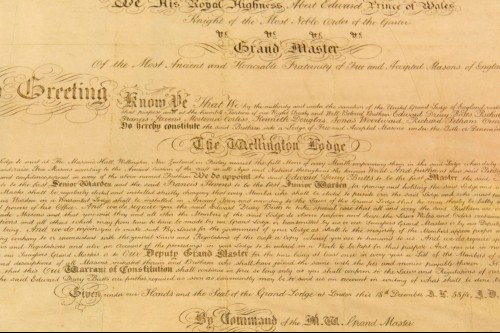
About Freemasonry and the United Grand Lodge of England
The Wellington Lodge is part of the District Grand Lodge of North Island, New Zealand under the United Grand Lodge of England.
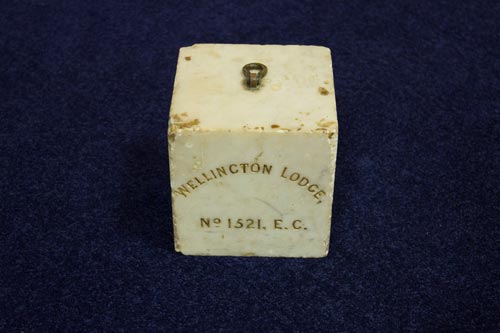
The United Grand Lodge of England is the Governing body for over a quarter of a million Freemasons meeting in over 8,000 Lodges worldwide and each lodge has its own unique identifying number.
In the UK, Lodges are grouped into either the Metropolitan Grand Lodge or Provincial Grand Lodges. Most of the “overseas” Lodges are grouped into Districts, each headed by a District Grand Master appointed by Grand Lodge. The only real difference between Districts and Provinces is that Districts are given somewhat more power to run their own affairs. This is an historical anomaly probably resulting from the length of time it took for communications between Districts and Grand Lodge. It could be argued that with modern communications methods there should now be no distinction between Districts and Provinces; however, Freemasonry loves its traditions!
In New Zealand there are two District Grand Lodges, The North Island and the South Island. The District Grand Lodge of North Island, has twenty four Lodges and meets in towns as far apart as Wellington and Kerikeri.
At the top of the District hierarchy is the District Grand Master (DGM) who has a Deputy and two Assistant District Grand Masters as well as a number of District Grand Officers whose main duties are ceremonial.
Answerable to the DGM for the administration of the District are three committees. These are the Board of General Purposes, The Chapter Committee of General Purposes and the Board of Trustees of the North Island English District Masonic Charitable Trust. In addition, the District has one paid employee, the District Grand Secretary who has an office in the English Masonic Centre at Ellerslie, Auckland. All of these appointments and committees are filled by members (mostly past masters) of the various Lodges within the District.
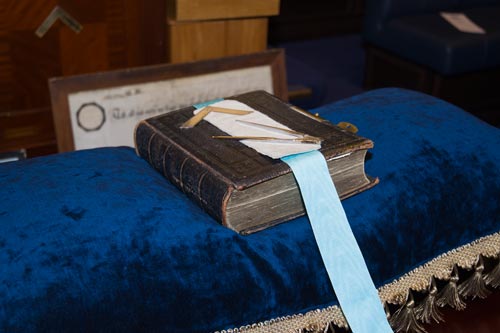
Each Lodge within the District has a Master who is elected by the members of that Lodge to rule over the Lodge for a period of one year. The Lodges have a team of officers appointed by the Master or elected by the members to administer and provide ceremonial for the Lodge.
The Book of Constitutions contains the rules and regulations which govern all aspects of the inter-relationships between Lodges, Districts and Grand Lodge as well as the administration, control and behaviour of Masons at all levels.
Freemasonry:
A Sense of Belonging – Freemasonry is a global phenomenon; as soon as people are initiated into freemasonry they become part of a network of friends that spans the four corners of the globe.
Charity – Freemasonry contributes a great deal in the way of charity both to society and disaster relief through The Freemasons’ Grand Charity and its various charity branches. When grouped together an organisation like freemasonry can do much more good than the sum of its individual parts.
Friendship – Freemasonry is a fantastic way to meet people you wouldn’t normally come into contact with. An interest in freemasonry fosters strong bonds of fellowship between people of all ages, races, religions and socio-economic classes. Political and religious discussion are strictly forbidden at Masonic meetings, meaning lodge members of otherwise opposing views can find no sense of division.
Personal Development – There are three main steps in freemasonry and progression through lodge towards senior positions imbues self-discipline and commitment. Freemasonry also provides a medium for its members to develop their self-confidence and awareness.
Contributing to society – Besides its core charitable aims, Freemasonry also teaches tolerance and understanding. Many of its members are also active in wider society bringing about changes to make communities better places for people to live. This can be local lodges pledge to raise money and awareness for local causes, as well as hosting social events and other events that benefit local communities.
If you feel that these are principles that relate to you and are interested in joining freemasonry then click here to visit the join page of this website for further information.
